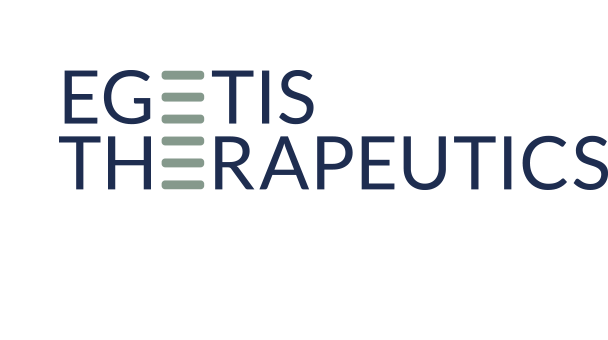New data confirms long-term efficacy and safety of Emcitate® in MCT8 deficiency patients
October 25, 2021
Egetis Therapeutics AB (publ) (ticker: EGTX) today announced that strong data from long-term treatment, up to 6 years, of 67 patients with the company’s leading drug candidate Emcitate (tiratricol) has been published in the Journal of Clinical Endocrinology & Metabolism.
The data comes from an investigator-initiated real-life cohort study at 33 sites conducted by the Erasmus Medical Center, Rotterdam, Netherlands, where the efficacy and safety of Emcitate (tiratricol) was investigated in 67 patients with MCT8 deficiency, a rare congenital disorder of thyroid hormone transport across cellular membranes with detrimental natural history and no currently available therapy. Patients with mutations in the thyroid hormone transporter MCT8 have impaired neurocognitive development and chronic thyrotoxicosis associated with pronounced underweight and cardiovascular dysfunction, resulting in significantly shortened life expectancy. Approximately 1 in 70,000 males are affected.
The 67 patients had a median baseline age of 4.6 years (range: 0.5–66 years) and were treated with tiratricol for up to 6 years, with a median of 2.2 years (range 0.2 – 6.2 years). The primary endpoint in the study was the change in serum T3 concentration from baseline to last-available measurement. The pre-specified secondary endpoints were key measurements of clinical complications of chronic peripheral thyrotoxicosis, including change in body weight and height, cardiovascular symptoms and biochemical markers that reflect thyroid hormone status in organs such as liver, kidney and muscle.
The primary endpoint, the mean serum T3 concentrations, decreased significantly from 4.58 (SD: 1.11) nmol/L at baseline, to 1.66 (0.69) nmol/L at last visit; target: 1.4–2.5 nmol/L (mean decrease 2.92 nmol/L, 95% CI 2.61-3.23 nmol/L, p<0.0001). Several clinically relevant and highly significant improvements were reported among secondary endpoints. Body weight for-age (Z-score) exceeded that of untreated historical controls (mean difference 0.72, 95% CI:0.36-1.09, p=0.0002). Mean heart rate-for-age (Z-score) decreased (mean decrease 0.64, 95% CI:0.29-0.89, p=0.0005). SHBG concentrations decreased from 245 (99) nmol/L at baseline to 209 (92) nmol/L at last visit (mean decrease 36 nmol/L, 95% CI: 16-57, p=0.0008). Mean creatinine concentrations increased from 32 (11) μmol/L at baseline to 39 (13) μmol/L at last visit (mean increase 7 μmol/L, 95% CI: 6-9, p<0.0001). Mean CK concentrations did not change significantly. No drug-related severe adverse events were reported.
Long-term efficacy of T3 analogue Triac in children and adults with MCT8 deficiency: a real-life retrospective cohort study: JCEM: Link
“Our data confirm the positive results from our previous trial with tiratricol, Triac Trial I, and also indicate that the beneficial effects are maintained over time, up to six years. The consistent efficacy seen across several key clinical and biochemical parameters that were sustainably alleviated in patients with MCT8 deficiency regardless of age, supports the use of tiratricol in the treatment of MCT8 deficiency”, said the principal author of the article, Edward Visser, MD, PhD, at the Academic Center for Thyroid Diseases, Erasmus Medical Center.
“These real-life data demonstrate that this treatment sustainably improves various features of the peripheral thyrotoxicosis and underline its benign safety profile”, said the first author of the article, Ferdy van Geest, MD, at the Academic Center for Thyroid Disease, Erasmus Medical Center.
“We are very happy that the Erasmus Medical Center has published this strong data on the long- term efficacy and safety of Emcitate in the treatment of MCT8 deficiency, a very rare condition with significant unmet medical need. We are currently evaluating how this data can be used as additional evidence in forthcoming regulatory submissions of a Marketing Authorisation Application (MAA) in Europe and a New Drug Application (NDA) in the US, in our efforts to make Emcitate available to the patients suffering from MCT8 deficiency across the world,” said Nicklas Westerholm, CEO, Egetis Therapeutics.
A previous clinical Phase II study (Triac Trial I) was published in the Lancet Diabetes & Endocrinology in 2019 and showed clinically relevant and highly significant results following one-year treatment with tiratricol in MCT8 deficiency patients of all ages.
Patient recruitment in the ongoing pivotal Phase IIb/III study (Triac Trial II), investigating neurocognitive effects of early intervention with Emcitate (tiratricol) in very young (<30 months of age) patients with MCT8 deficiency, is progressing well and the study recruitment is expected to be completed in Q4 2021 according to plan.
Emcitate holds Orphan Drug Designation (ODD) in both EU and the US and was granted US Rare Pediatric Disease Designation (RPD) in November 2020 and in October 2021 the product received Fast Track status from the FDA.
The information was submitted for publication, through the agency of the contact person set out above, at 2021-10-25, 08:00 CET.

